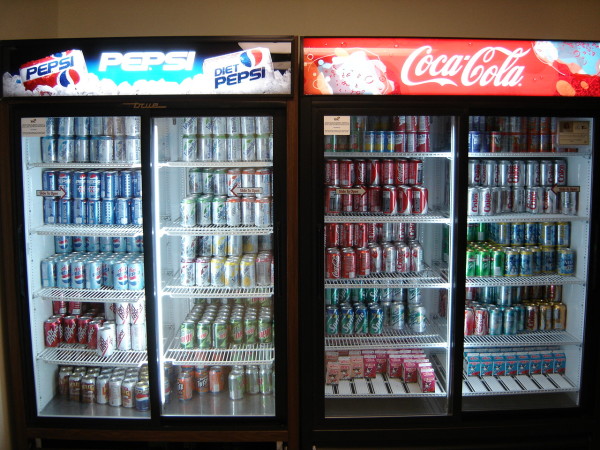As discussed in “Stop Sipping Soda! Berkeley’s New Soda Tax“, in a past election, Berkeley voters overwhelmingly supported and passed Measure D, a tax on sugar-sweetened beverages sold within the city. Berkeley is the first city in the United States to impose this kind of law. The new tax, which went into effect on January 1, 2015, is roughly one cent per fluid ounce and imposed on beverage distributors. Those in support of the tax adamantly argue for its effectiveness, citing sugar sweetened beverages as a contributing factor to high obesity, Type 2 diabetes, and heart disease rates in the US.
Since its passage, Berkeley city officials have been working hard to implement this tax and clearly lay out its guidelines. The Big Soda industry, which spent over two million dollars on its campaign against Measure D, continues to fight the measure even though it is already in effect. Those in the crusade against Measure D fault it for having too many exemptions that affect the efficacy of its implementation. Retailers who make less than $100,000 annually and vendors selling beverages on the UC Berkeley campus are just two examples of groups that are exempt from the new tax. Despite this, some larger distributors like Coca-Cola have been very compliant with the new regulations. Other smaller local distributors cite the tax as “confusing” and lacking in clear guidance. They are no longer willing to give Berkeley their business. Already, Dollar Tree has pulled all its sugar-sweetened drinks from its shelves in Berkeley, which decreases consumer access to these products. City officials have, however, met with distributors, published a FAQ regarding the law online, and emailed more information to distributors in an effort to address their concerns.
Image Source: Justin Sullivan
Although the tax technically went into effect in January, the city of Berkeley postponed its collection until March to allow more time for clarification. In its first month of implementation, the soda tax brought in $116,000. Berkeley City Council member Linda Miao is optimistic about the tax’s success, estimating that the city could bring in at least $1.2 million in the coming year from the tax alone. The Berkeley City Council has approved advance funding of $500,000 and wants half of that to go to the school district’s nutrition education program, allowing the collected tax funds to be put towards bolstering health in the community.
Earlier this year, the Dietary Guidelines Advisory Committee, a federal committee, released a report echoing the hopes of Berkeley city officials in believing that “higher sugar-sweetened beverage taxes may encourage consumers to reduce sugar-sweetened beverage consumption”. The report went on to suggest that the revenue from these taxes could go into subsidizing healthier fruits and vegetables. Currently, 33 states have a tax on sugar-sweetened drinks, but Barry Popkin, a nutrition professor from the University of North Carolina Chapel Hill, cites these taxes as being far too low to significantly affect sugary beverage consumption. Still, states like Vermont and Connecticut are looking to impose higher beverage taxes of their own, in the hopes of increasing state revenue and improving public health in their respective communities. These current state taxes are about 5.2% of the sales price, but Berkeley’s city-wide tax is substantially higher and is, in Popkin’s opinion, high enough to produce a meaningful drop in consumption. Lisa Powell, a health policy professor at the University of Illinois, predicts that a one cent per ounce tax like Berkeley’s could decrease unhealthy drink consumption by around 20%, while others speculate closer to a 15% decrease. All of these are just predicted outcomes, however, as we will look to Berkeley’s progress in the coming year to see if there is a significant decrease in sugar-sweetened beverage consumption and any subsequent change in the community’s health. If so, other cities will likely consider following Berkeley’s lead.
Feature Image Source: Rex Sorgatz










